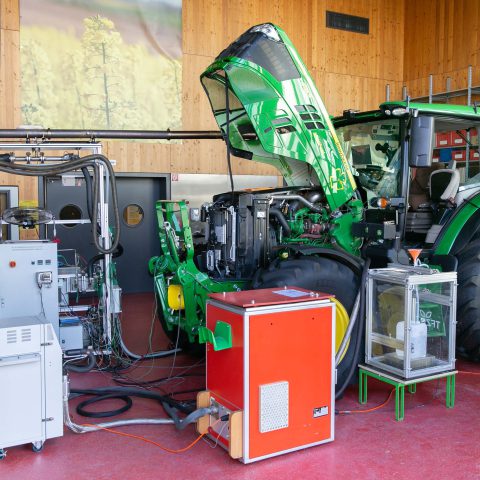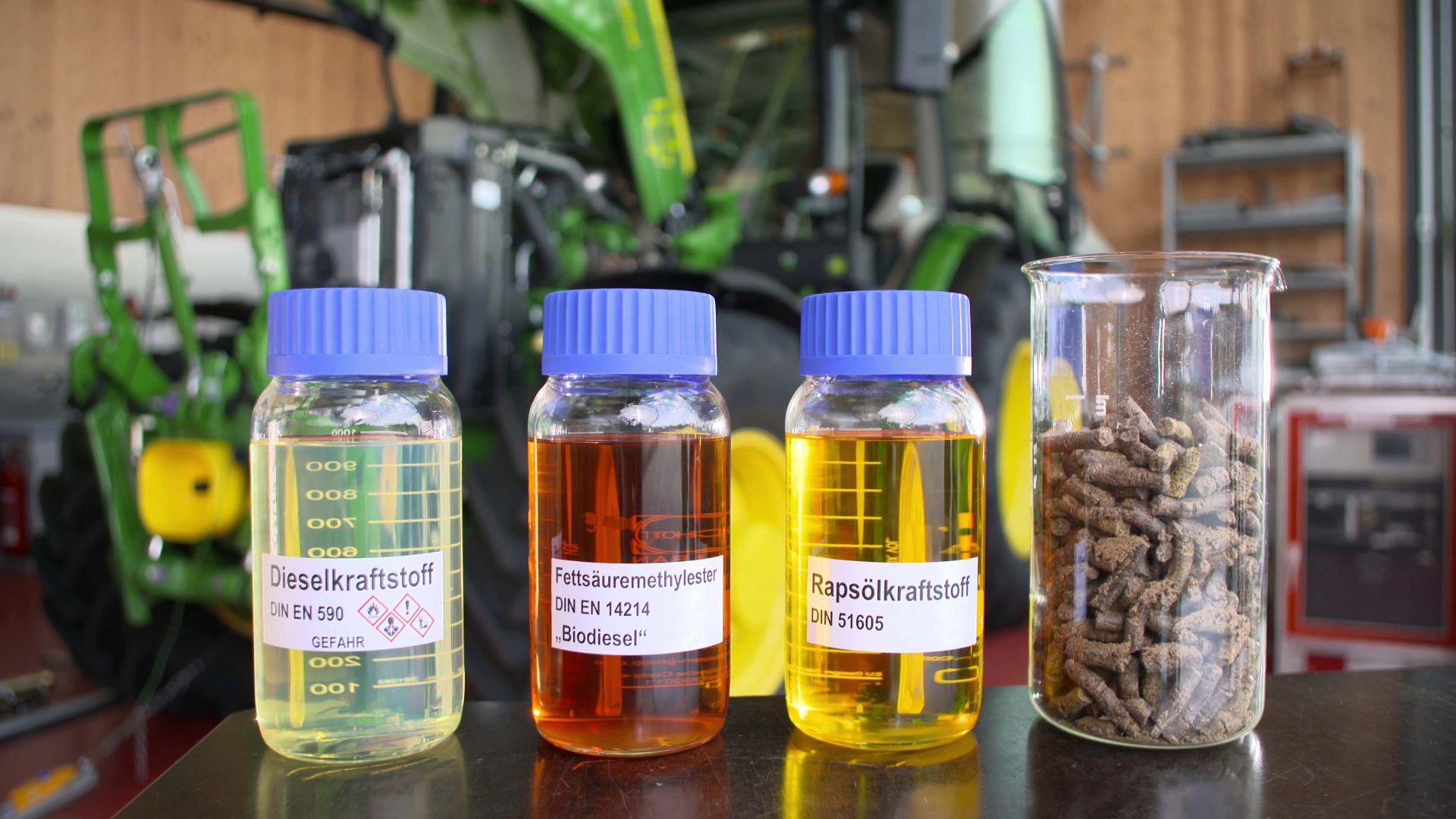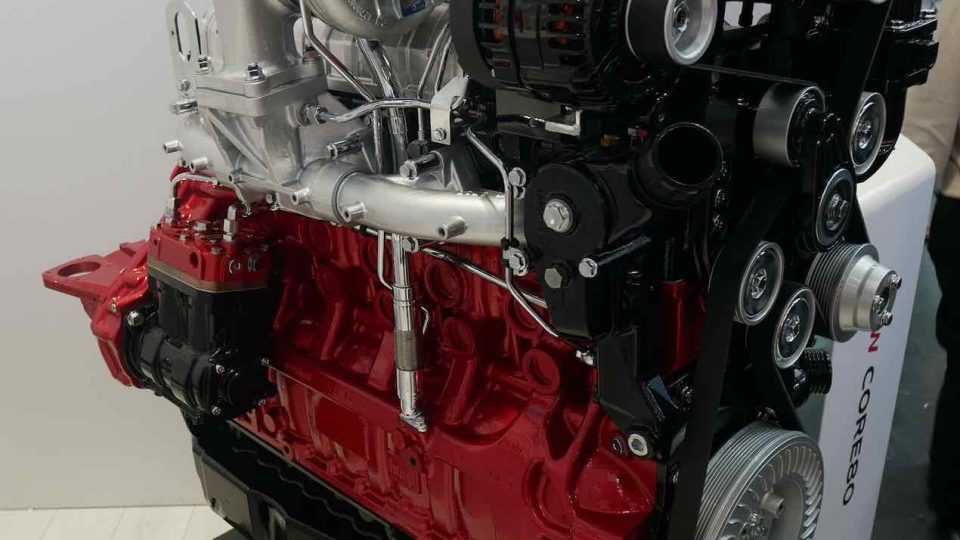John Deere thinks multifuel
With MultiFuel engine concept for John Deere tractors harmonises ICE and decarbonization

John Deere is investing on multifuel engines, such we anticipated in September. According with Deere, the MultiFuel engine allows the use of biofuels (pure vegetable oil, biodiesel, renewable diesel), standard diesel or fuel blends, thus contributing to resource savings. Biofuel production also generates high-quality protein carriers as a by-product, which can be used as animal feed and thus replace soya imports from abroad. The use of biofuels is therefore perfectly compatible with food production. In addition, with the ‘one-tank’ solution, which is suitable for any fuel in pure or blended form, it is also possible to use vegetable oils produced directly on farms.
Must5-Trak, a John Deere multifuel concept
In the project ‘Development and Field Test of an Exhaust Gas Stage V MultiFuel tractor (Must5-Trak) the basic concept for MultiFuel engines for agricultural machinery was jointly developed by John Deere, the Straubing Technology and Promotion Centre and the Technical University of Kaiserslautern. The project was financed by the German Federal Ministry for Food and Agriculture and supported by the Fachagentur Nachwachsende Rohstoffe (Renewable Energy Agency). In order to promote the market introduction of this concept and the use of biofuels in agriculture in Europe, however, fair taxation of biofuels for agricultural use in Europe compared to fossil diesel is necessary.

Multiple sensors
Various sensors in the standard combustion engine and exhaust after-treatment system provide data for a mathematical-physical model and an artificial intelligence approach that recognises different fuel mixtures. On this basis, the engine’s electronic control unit selects the appropriate software setting for optimal engine operation and compliance with European Stage V regulations. This solution enables agricultural and forestry operations to reduce CO2 emissions and manage price volatility and fluctuations in fuel market availability. EU Stage V emission regulations are fully met by all fuel combinations. This enables farmers to use high percentages of renewable and climate-friendly fuels and increases the resilience of primary food production through a high level of independence from fossil fuel use.









